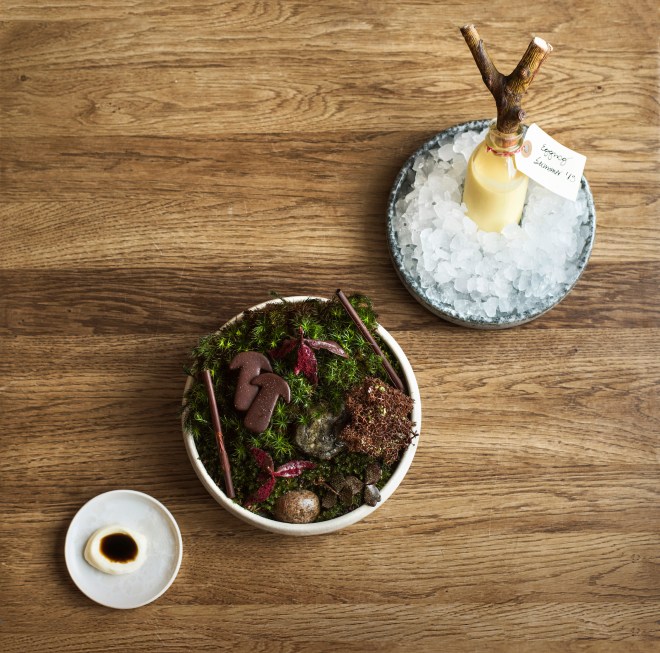
I had the pleasure of interviewing Rene at Noma in August 2015. The entire interview was published in the Dolce Vita magazine, here I am publishing it in chapters. This is chapter 2. Read also introduction and chapter 1.
Rene Redzepi is known also for his research and innovative approaches. He was and still is working a lot with dehydration, fermentation, with parts of vegetables and meat that are normally discarded… So I was curious to know what will follow.
My main focus will be seasonality. There are seasons when nature bears many fruits and times when choice is much poorer. We have to adjust to both so our menu will strictly follow the rhythms of nature. In spring and summer for example we will focus on the richness of the vegetal world, in winter instead when plants sleep their winter sleep, we will focus on fish. So our menu will not follow the classical structure in which you always have a bit of everything but will completely change with seasons. We will also continue researching fermentation – we are still at the beginnings, there is still so much to try out and to discover. Fermentation is all around us – take for example coffee, beer, wine, chocolate, bread, sauerkraut, yoghurt… but we still don’t know it into the depth. We are still testing how bacteria, fungus and yeast change the flavours of different ingredients.
Sustainability is very important for you …
True. When you work with food, with farmers and attend congresses like our MAD, you start asking yourself many questions and you become aware of all the problems. Innovation, capital and ethical thinking should always be naturally connected – leaders should dedicate more attention to it. In our work one of the greatest problems is waste.

That’s why you started working also with waste and create dishes also out of things which often get discarded …
Yes, for us it’s not only a creative concept – it’s about finding ways for elimination of waste, which is a very complex matter. We are always trying to create our menu in such a way, that guests don’t leave anything on the plate. We also don’t use only that perfectly beautiful part of cauliflower as it’s common in the haute cuisine. We are finding ways for using also things as entrails and remains of bread… This is our great daily challenge. We have also a compost machine in which we put all the food remains/waste trying to create soil out of it. It works, just our soil has still too high levels of acidity, so there is still some research to do.
I don’t want to preach. That’s just our way and I don’t say it’s the only way to do it. I believe everybody in our business is trying to do the best they can. Our rules are ours, other people may have different rules and I respect them. But since we are quite exposed, people see what we do and if we manage to inspire somebody to become more sensitive for these problems, I am really glad about it. I don’t believe in an absolute truth, everybody should find his own, but I believe that leaders of the future should be taught sustainability with the same endeavour as they are taught financial algorithms.
Go to chapter 3.
By Andreja Lajh


